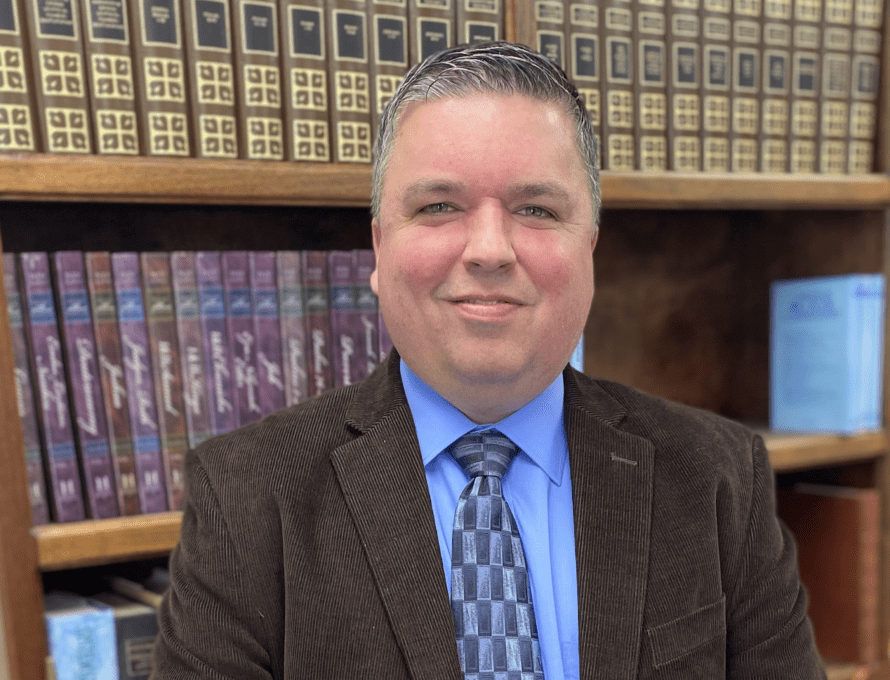“I know a leading psychiatrist who thinks it a bad week if he does not help two or three of his patients to (place faith in) Christ,” the Christian apologist and Oxford don Michael Green once wrote. Unfortunately, should that psychiatrist ever move to Kansas City, Mo., he could be the target of government prosecution for sharing his faith with patients – particularly, if he shares the gospel with children confused about their gender.
As previously reported in The Pathway (here and here), the nine-member legislature for Jackson County – the most populous Missouri county in the Kansas City metro area – voted to ban so-called “conversion therapy” for minors, April 3. According to the ban, which has now been signed into law, licensed medical and mental health professionals are prohibited from helping minors turn away from their LGBTQ+ desires or lifestyles – even if they and their parents ask for this help.
The law defines “conversion therapy” very broadly, as “any practice or treatment that seeks to change an individual’s sexual orientation or gender identity.”
No religious liberty exemptions are provided in the county’s new law. A state-licensed Christian counselor working at an explicitly Christian counseling center could face prosecution. Evidently, even a pastor – if he also happens to be a state-licensed counselor – could be prosecuted for counseling someone in his own congregation.
In effect, this law criminalizes state-licensed Christian counseling in Jackson County. Indeed, even if only in particular circumstances, it criminalizes gospel proclamation.
After all, the gospel calls all people – in the words of the apostle Peter – to “repent” of their sins “and be converted” (Acts 3:19, NKJV). In a letter to the Jackson County legislature, the Missouri Baptist Convention’s (MBC) Christian Life Commission (CLC) clearly made this point, decrying the county’s “conversion therapy” ban as “unconstitutional and immoral.”
“Central to the Christian faith is the proclamation of the gospel of Jesus Christ and the power of God to produce life change in all who trust and obey Christ,” the CLC wrote. “Christians call this ‘conversion.’”
According to Christian authors Dave Earley and David Wheeler, the goal of Christian evangelism isn’t simply to convince people of theological truths, but to lead them to conversion – that is, to the act of turning away from our sins in repentance and turning in faith toward Christ for salvation.
When we evangelize people in the LGBTQ+ community, we must lovingly call them to conversion, as well. As J. Alan Branch, professor of Christian ethics at Midwestern Baptist Theological Seminary, has written, “We are in fact mandated to call people involved in homosexual behavior along with all other forms of sexual immorality to repentance and faith in Jesus Christ.”
But, someone may ask, should a licensed medical or mental health professional really evangelize on the job? Michael Green – whose psychiatrist friend routinely evangelized on the job – also raised this question, and he answered with a resounding, “Yes.”
“[I]f you tell me that matters of private conviction should not be brought into the market place,” he wrote, “I have to reply that such a disjunction dates back only to the Enlightenment and has proved disastrous for our society. …
“Christians work not only to make money and do a useful job, but to be ambassadors of Jesus Christ,” he added. “And until that happens on a large scale we shall not see a transformation of society such as was so evident in the first and second centuries.”
Christians must obey the Great Commission of Jesus Christ, the King of kings and Lord of lords, who holds “all authority in heaven and on earth.” He has commanded us to bear witness to His redemptive work and to make disciples of all nations (Matt. 28:18-20; Acts 1:8).
No earthly government has authority to bypass, override or revise Christ’s command. There are no limits to the privilege and responsibility of calling people to faith and conversion. Even if we should be bound as criminals for Christ’s sake, we can confidently declare with the apostle Paul that the gospel “is not bound” (2 Timothy 2:9).
Fortunately, with its blatant violation of First Amendment guarantees to the freedoms of religion and speech, Jackson County’s new law is “ripe” for judicial review, according to Kansas City attorney Michael Whitehead, who serves as the MBC’s legal counsel. As such, let’s hope and pray that the court strikes it down as unconstitutional. Better yet, let’s hope and pray that the Jackson County legislature immediately revokes the egregious law.
In the meantime, Jackson County Christians who serve as licensed medical or mental health professionals may need to repeat the words of the apostle Peter, originally spoken when he was arrested for calling people to faith and conversion: “Whether it’s right in the sight of God for us to listen to you rather than to God, you decide; for we are unable to stop speaking about what we have seen and heard” (Acts 4:19-20, CSB).
Also, may we repeat the prayer of early Christians immediately following Peter’s release: “And now, Lord, consider their threats, and grant that your servants may speak your word with all boldness” (Acts 4:29, CSB).

